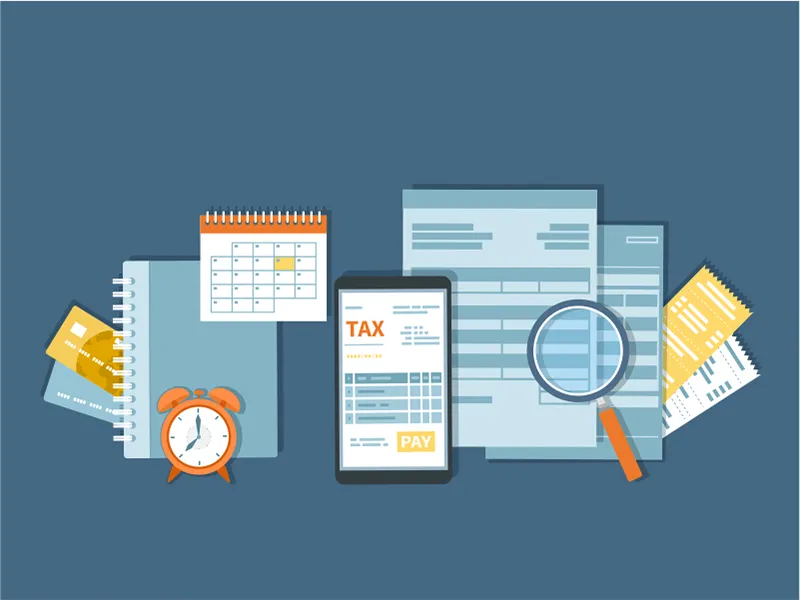
After the closure of a financial year, a very important ritual for every taxpayer is filing their tax returns. Since FY22-23 has come to an end and we have entered into the new financial year, it is time to get ready for ITR filing. The last date to file Income Tax Return (ITR) for FY 2022-23 (AY 2023-24) without a late fee is 31st July 2023.
The Income Tax Act, 1961 has specified many rules and regulations that have to be adhered to while filing the respective tax returns. It is important that the deadline for filing tax returns is not missed. It will lead to immediate consequences like a penalty as well as long-term impact in case of set-off and carry forward of losses.
The details of such consequences and other relevant information regarding the filing of the ITR are provided below.
ITR Filing Last Date FY 2022-23 (AY 2023-24)
In order to file the respective ITR in time, it is important for the taxpayers to know the due dates for filing the same. The Income Tax Act specifies different due dates for taxpayers that are required to get their accounts audited others. CBDT has the power and the authority to provide an extension for the due dates to file ITR at their discretion.
For the Financial Year 2022-23, the revised due dates are tabled below.
| Category | Revised Due Date |
| ITR for Taxpayers not requiring audit | 31st July 2023 |
| ITR for tax audit | 31st October 2023 |
| ITR for transfer pricing | 30th November 2023 |
| ITR for Belated or Revised Returns | 31st December 2023 |
What happens if you do not file ITR on time?
There are multifold consequences if a taxpayer fails to file their income tax returns on time. Some of these consequences are detailed below.
a. Belated return
If a taxpayer has missed filing their tax returns on time, they still can file their tax returns in the form of belated returns under section 139(4). This return can be filed any time before the end of the assessment year or before the completion of the assessment, whichever is earlier. Taxpayers are liable to pay interest under section 234A in case of the belated return. However, if the tax liability is nil, they do not need to pay any interest for filing a belated return.
b. Penalty
The prime consequence of not filing the tax return is the penalty. Taxpayers are liable to pay a penalty under section 234F for not filing their tax return on time under section 139(1). The maximum penalty under this section was Rs. 10,000. However, this section was revised for Financial year 20-21. The maximum penalty under this section now stands at Rs. 5,000. The details of the penalty to be paid for non-filing of tax returns are tabled below.
| Gross Total Income | Penalty |
| Up to Rs. 2,50,000 | NIL |
| Up to Rs. 5,00,000 | Rs. 1,000 |
| Above Rs. 5,00,000 | Rs. 5,000 |
c. Interest
Interest is another crucial factor that has to be considered by the taxpayers when they fail to file their tax returns on time. Taxpayers are liable to pay interest at the rate of 1% per month or part thereof on the tax that is unpaid as per section 234A.
An important point to note here is that if the tax liability is more than Rs. 1,00,000, taxpayers will be charged interest from the original due date for their respective category (audit or non-audit cases, transfer pricing, etc, as the case may be) and not the revised due date declared by CBDT. If, however, the tax liability is lower than Rs. 1,00,000, no interest will be charged on ITRs filed before 31st December 2023.
d. Delay in receiving refunds
Refunds due to the taxpayers are processed and credited to their respective bank accounts only after the due completion of assessment or returns. In order to not delay this process, it is imperative that the returns are filed at the earliest.
e. Set-off and carry forward of losses
The Income Tax Act provides the taxpayers a relief against their losses by giving them a benefit to set them off and carry them forward for a period of 8 consecutive years. However, this benefit is available only if the respective ITRs are filed on time i.e., within their due dates. According to the Act, any loss (except loss under income from house property) needs to be reported as well as filed in accordance with provisions of section 139(1) to be eligible for set-off against future gains and carrying the balance forward for 8 years.
Conclusion
Filing income tax returns is an important part of completing the financial year. However, what is equally important is filing them in time before the completion of the respective due dates. The Income Tax Department has time and again revised the due dates for the benefit and convenience of the taxpayers, especially due to the pandemic. It is important to file the tax returns even if there is no taxable income as the benefits of filing the ITR on time are available in the form of long-term benefits like easy loan approvals, better credit reports, etc.
FAQs on the consequences of not filing ITR on time
The benefits of filing ITR on time include the following,
-When a person applies for any loan, lenders review their creditworthiness. Their ITRs are often the first point of reference in such cases. Hence, filing ITRs on time can improve the chances of getting loans sanctioned as well as can provide the benefit of pre-approved loans.
-ITRs can also be used as KYC for important purposes like applying for a visa or passport or loans.
-Filing of ITRs gives the benefit of set-off and carrying forward of losses. This reduces the ultimate tax liability of the taxpayers against future gains.
A revised return can be filed by any taxpayer if the original ITR has any error or mistake or misreporting of income. Taxpayers can file the revised return at any time before the end of the relevant assessment year. In the case of FY 22-23, the last day to file the revised return is 31st December 2023.
The maximum penalty for delay in filing ITR is restricted to Rs. 5,000
Yes. E-verifying the ITR is a mandatory step in the filing of the ITR failing which the process is said to be incomplete. The Income Tax Department cannot process the returns till they are successfully e-verified. Hence, even if a taxpayer has filed their ITR before the due date but has missed e-verifying them before completion of 120 days from filing them, the return is not said to be filed on time as per section 139(1).
Under section 234A, taxpayers are liable to pay interest at the rate of 1% per month or the part thereof on unpaid tax amount in case they have missed filing their ITR on time (before the completion of the respective due dates).

























